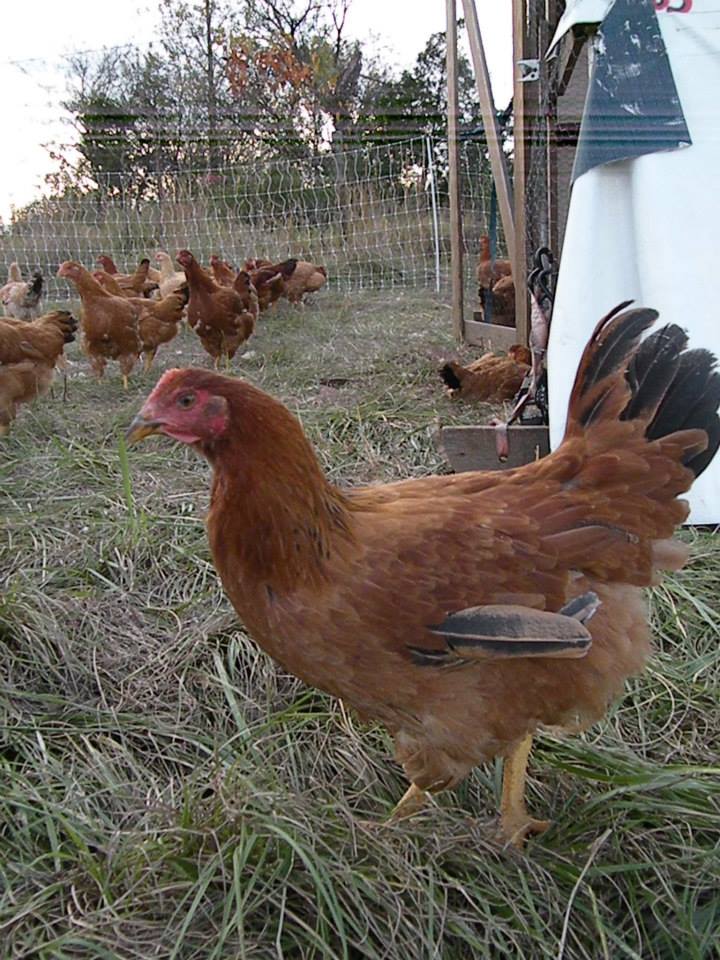Freedom Ranger Broiler Chickens
Chicks arrive on the farm a couple days after hatching. For the first two or three weeks of life they live in the safety and warmth of the brooder. Then they are old enough to out on pasture and into our movable “chicken tractor” where they have access to fresh grass and other greenery as well as bugs and seeds. Once they are too big to fit through the fence, around five weeks or so, they are free to wander the pasture enclosed within a portable electric fence. Like all our livestock, chickens are m oved around the pasture to ensure they always have plenty of fresh forage. In addition to foraging for seeds, bugs and greenery, we feed antibitic-free chick crumbles and fermented grains. They are processed on the farm at 10-12 weeks of age.
oved around the pasture to ensure they always have plenty of fresh forage. In addition to foraging for seeds, bugs and greenery, we feed antibitic-free chick crumbles and fermented grains. They are processed on the farm at 10-12 weeks of age.
Freedom Ranger chickens are the perfect middle ground between the fast-growing Cornish X chickens and the more slender, slow growing heritage breed chickens. Unlike the Cornish X, this breed was specifically developed to thrive on pasture. Because they take nearly twice as long to grow, the meat is superior in texture and in flavor, yet they still produce a nice plump bird. They have more omega-3 fats and less saturated fat than faster growing chickens.
Whole frozen chickens are available for sale at the farm and to our CSA members. A Broiler Chicken share includes one whole, frozen 4-5.25 lb chicken per month ($20/month) the first week of each month. If you would like to purchase chickens, please call ahead for availability.
Laying Hens
Our lovely mixed laying flock lives in a mobile chicken coop that we move around so that they always have access to plenty of insects, grass seeds and other snacks. Eggs are available only to CSA members. An egg share can be added to your full season share for $150. As the number of eggs that our chickens lay varies continuously throughout the year, egg share members will recieve a proportion of all the eggs laid in a given week. There will be extra eggs in spring, and fewer eggs in October and November as the hens start preparing for winter. We expect that to average out to one dozen per week over the course of the season. Half shares of eggs are also available.